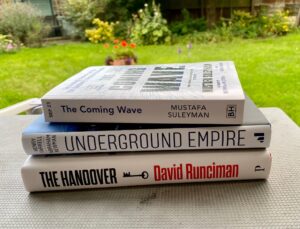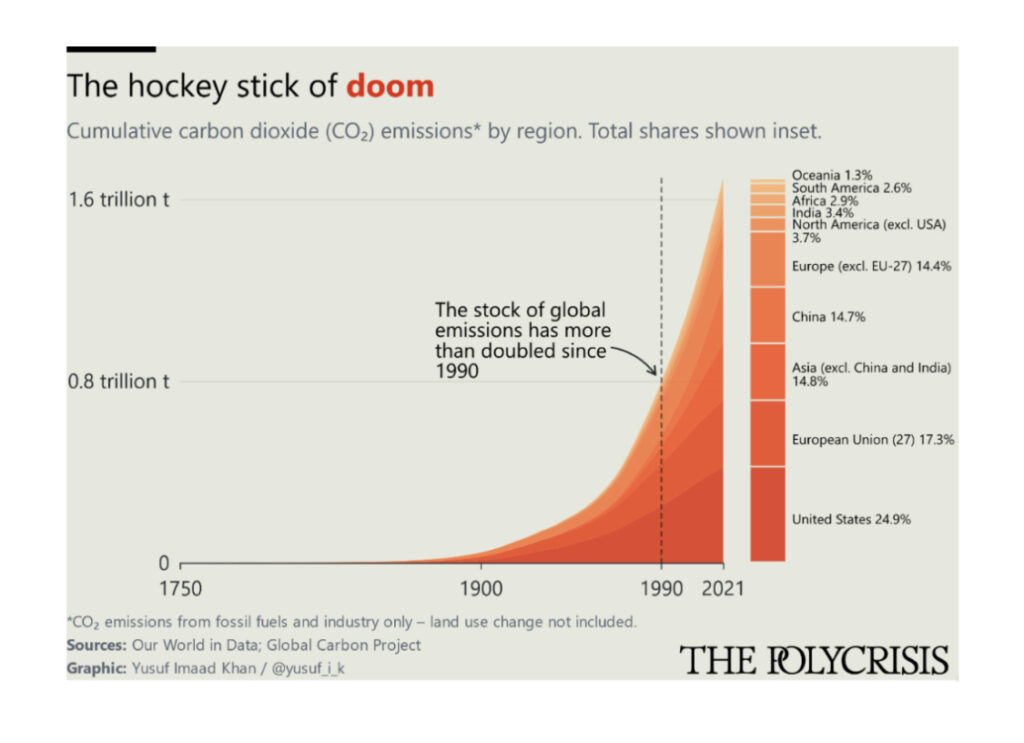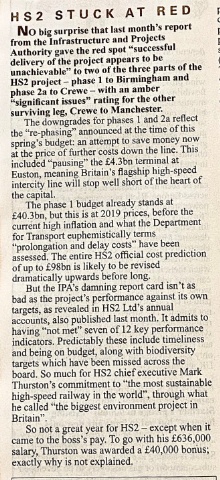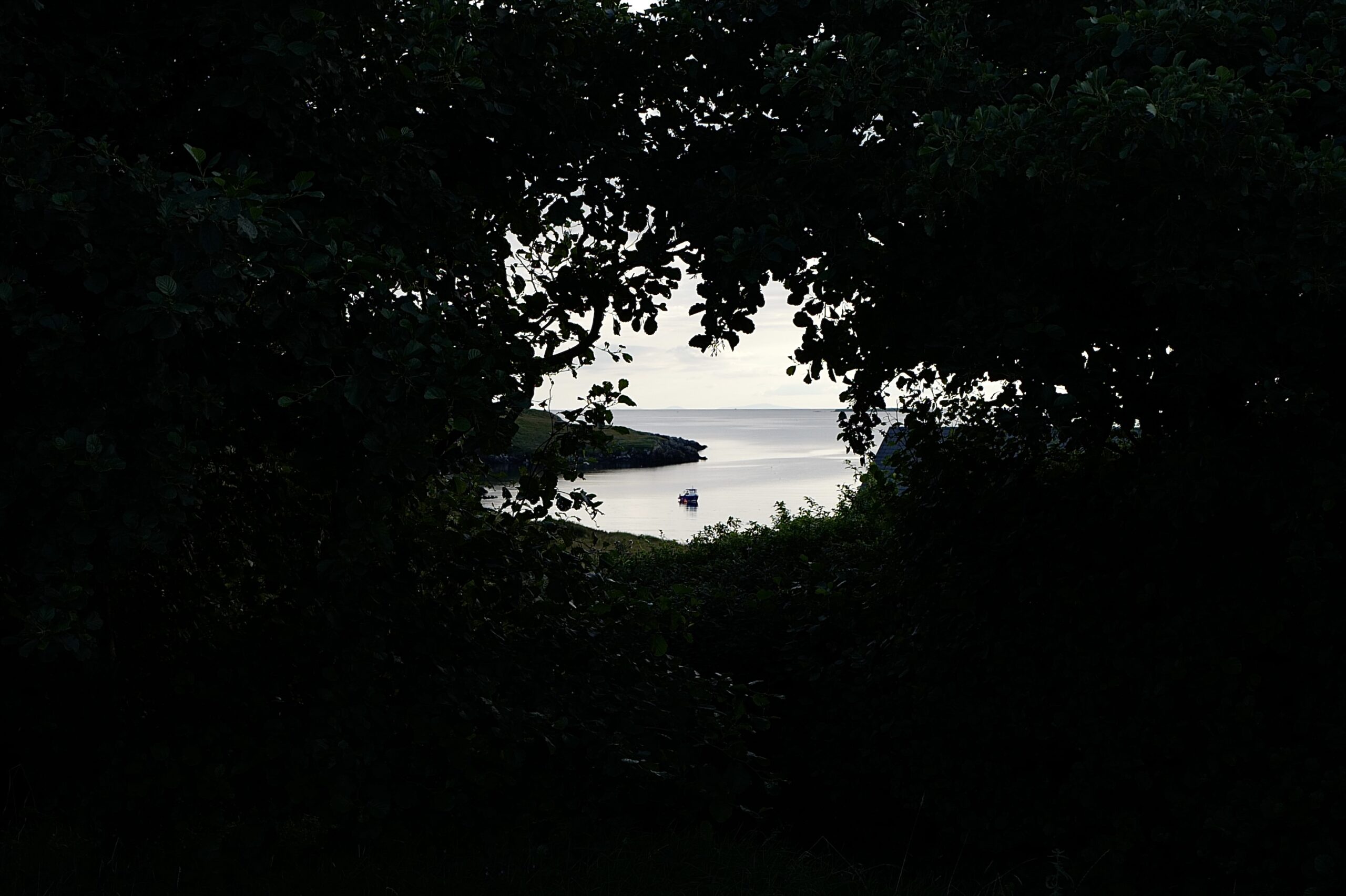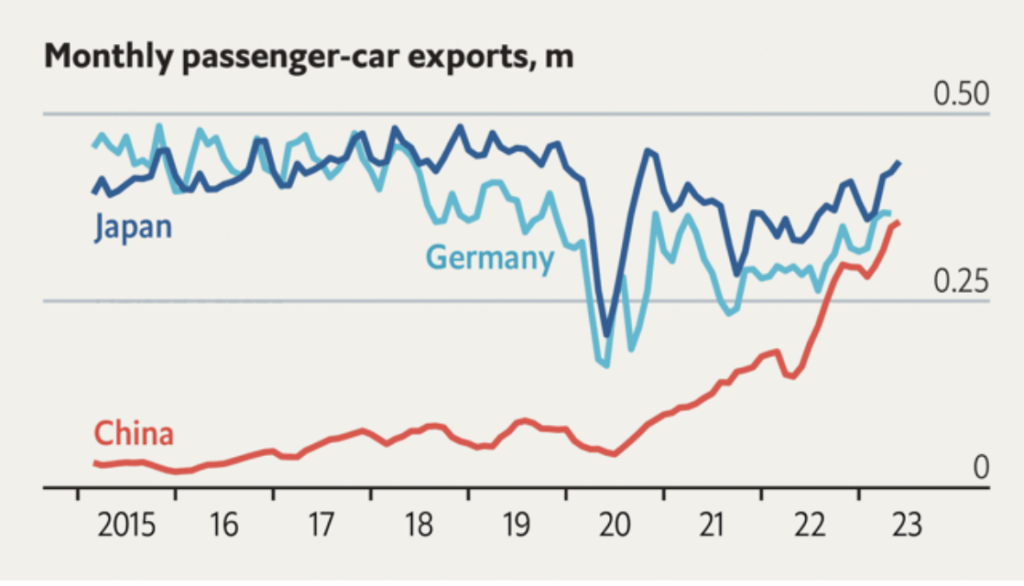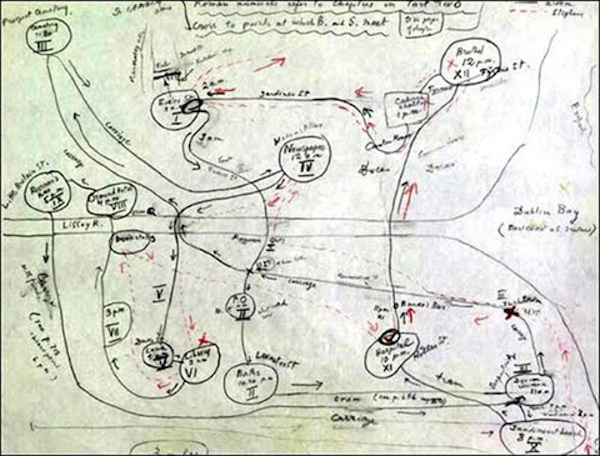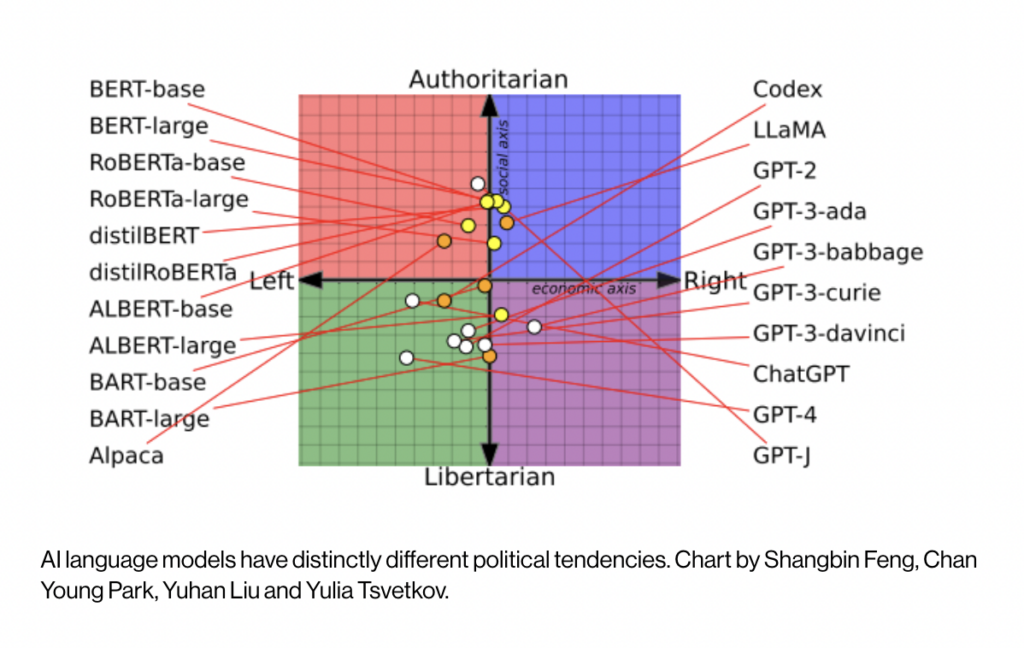Zombie Capitalism

In an airport shopping mall.
Quote of the Day
“Salary is no object; I want only enough to keep body and soul apart.”
- Dorothy Parker, discussing a job with a prospective employer.
Musical alternative to the morning’s radio news
Mozart | Rondo in B-Flat Major, K. 269 | Itzhak Perlman and the Berliner Phil
Long Read of the Day
How mainstream journalism is failing American democracy
I’ve written before about how infuriating it is to see the accomplishments of the Biden administration consistently downplayed (and sometimes ignored) by US journalism, especially of the elite kind. Every fart of Trump and his crowd is earnestly recorded for posterity. Posh journalists go on anthropological expeditions into the lowlands of working-class Trumpism in order earnestly to ascertain what’s bugging these strange natives. And so on. But nobody goes to ‘Biden country’, wherever that is, on lavish expenses. The result is an increasingly skewed view of what’s going on the country as a whole, and the implicit validation of a myth of the inevitability of a Trump victory.
And while it looks as though he certainly will be the GOP candidate in 2024, that doesn’t mean he will win the election. But if he does indeed lose again, that media-burnished myth will serve to fuel another ’stolen election’ myth and its ensuing chaos.
As it happens, James Fallows is likewise pissed off with American journalism. (Indeed he’s been pissed off for a long time — ever since his book Breaking the News: How the Media Undermine American Democracy came out in 1996.)
This recent blog post of his expands some of these concerns more eloquently than I could and is consequently worth your time.
And while we’re at it, have a look too at Will Bunch’s column in The Philadelphia Inquirer on US media coverage of Trump’s most recent indictment.
It was a remarkable night of imagery over substance, yet there was little discussion of why this accused felon was getting a phalanx of dozens of motorcycle cops, comprising police who are drawn to Trump’s authoritarian bluster like moths to the light. Trump’s glowering mug shot instantly became the most talked about picture in American history — yet not one pundit was able to explain why tens of millions of everyday voters are so eager to return to the White House this man who attempted a coup on Jan. 6, 2021, or why his poll numbers rise with each indictment. I guess the 20th-century author and socialist Upton Sinclair really nailed it when he wrote, “It is difficult to get a man to understand something, when his salary depends on his not understanding it.”
Books, etc.
My Observer review of The Coming Wave by Mustafa Suleyman.
What is it with wave metaphors? Technological determinists – people who believe that technology drives history – love them. Think of Alvin Toffler, who saw the history of civilisation as a succession of three such waves (agricultural, industrial and post-industrial). The idea is of immense power, unstoppable, moving inexorably towards us as we cower before its immensity, much as the dinosaurs must have done when they saw the mile-high tsunami heading in their direction.
Mustafa Suleyman says he is not a determinist, but at times he sounds awfully like one. “At its heart,” he writes at one point, “technology emerges to fill human needs. If people have powerful reasons to build and use it, it will get built and used. Yet in most discussions of technology people still get stuck on what it is, forgetting why it was created in the first place. This is not about some innate techno-determinism. This is about what it means to be human.”
The oncoming wave in his title is “defined by two core technologies: artificial intelligence (AI) and synthetic biology”, and it’s the conjunction of the two that makes it intriguing and original. Together, he thinks, these two “will usher in a new dawn for humanity, creating wealth and surplus unlike anything ever seen. And yet their rapid proliferation also threatens to empower a diverse array of bad actors to unleash disruption, instability, and even catastrophe on an unimaginable scale.” Our future, apparently, “both depends on these technologies and is imperilled by them”.
Once you get past this hyperbolic prologue, the book settles down into a serious exploration of what the future might hold for us all. Suleyman’s credentials for the task are good: he was co-founder of DeepMind, arguably the smartest AI company around…
The only difference between a good migrant and a bad one is time
Fintan O’Toole, the Irish Times columnist, has been visiting the Jewish cemetery in Dublin and written a fine piece with strong contemporary resonances which, alas, is behind the paywall.
So here’s the gist.
The Jewish refugees who came to Ireland in the late 19th century were fleeing the pogroms unleashed after the assassination of the Tsar Alexander II. Many of the ones who arrived in Dublin came from a shtetl called Akmiyan in the Kovno district of Lithuania, then part of the Russian empire.
“The accounts of their travails”, writes O’Toole,
are hauntingly similar to the stories that Sally Hayden tells so powerfully now of refugees trying to get to Europe: wading across rivers with children and bundles on their backs, walking hundreds or thousands of kilometres, paying off what would now be called traffickers, having to bribe officials to give them documents, evading border guards and criminal predators.
The Noyek brothers, Daniel and Abraham, created the wood products business that still thrives in Dublin today. But their descendant Davida Noyek recalled that on their long journey to Ireland “they met with experiences so unspeakable that they could never recount them even to their children. ‘It was terrible, you don’t want to know about it’ was to remain their only comment on the awful journey that lasted from 1894 until 1897.”
Many of these refugees arrived in Ireland destitute, speaking only Yiddish and Russian, and with little idea of where they were. They were looked down on even by the existing Jewish community in Dublin, where the word was that Akmiyan was “notorious as a nest of horse thieves and smugglers”.
“And yet”, writes O’Toole,
by the time I was a kid in the 1960s, the children and grandchildren of these asylum seekers were the height of respectability. They came to our road on Sundays to visit the cemetery in nice (though unflashy) cars. They were elegantly dressed and well-spoken. We admired and slightly envied them as people who seemed both successful and decent.
You get the message. It’s in the title of his essay.
Chart of the Day
How Canada turned its forests into a carbon bomb

Source: Bulletin of the Atomic Scientists
My commonplace booklet
The Only Surviving Recording Of Virginia Woolf’s Voice
Fascinating: she sounds exactly as I imagined she would.
This Blog is also available as an email three days a week. If you think that might suit you better, why not subscribe? One email on Mondays, Wednesdays and Fridays delivered to your inbox at 6am UK time. It’s free, and you can always unsubscribe if you conclude your inbox is full enough already!




